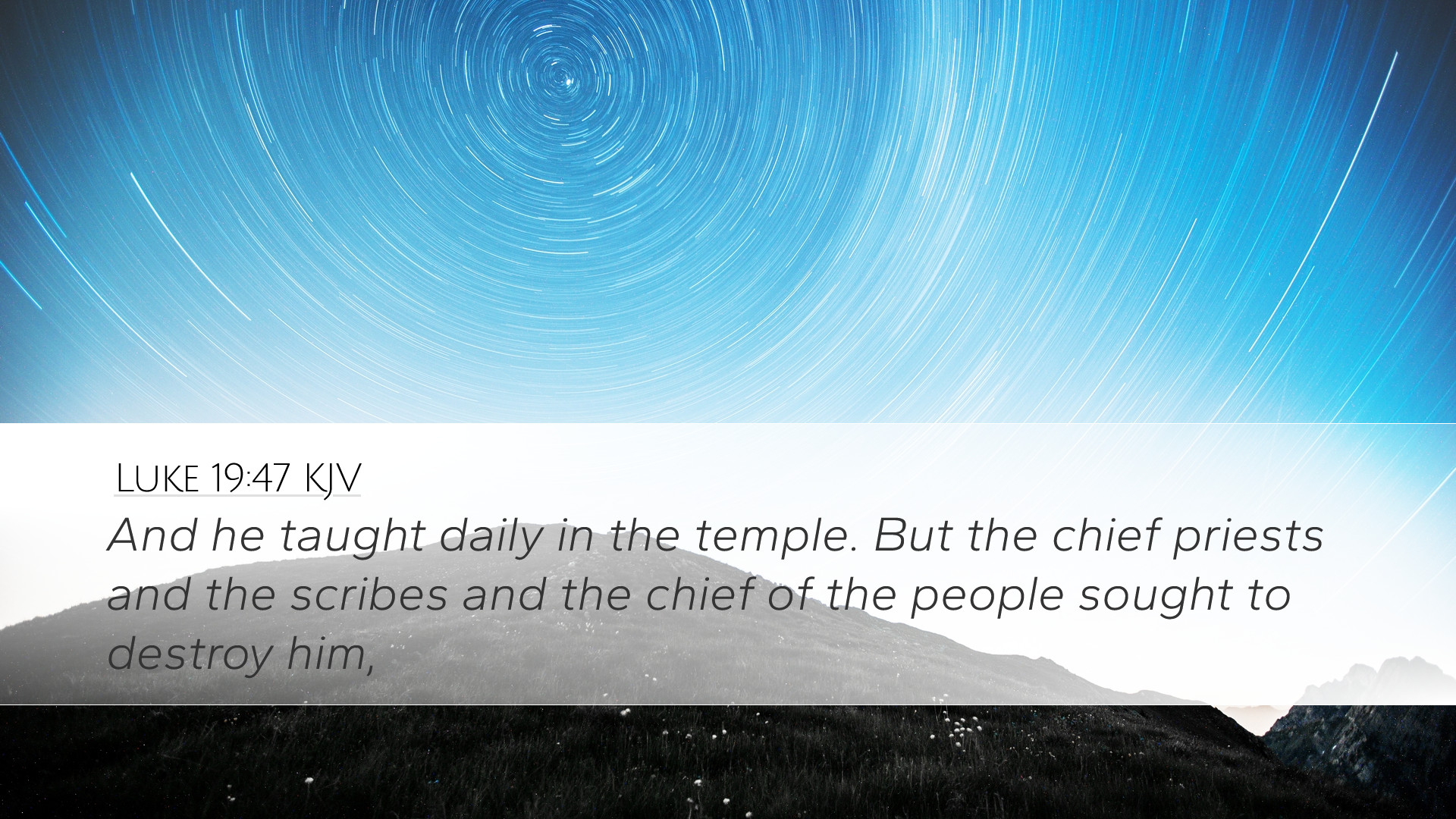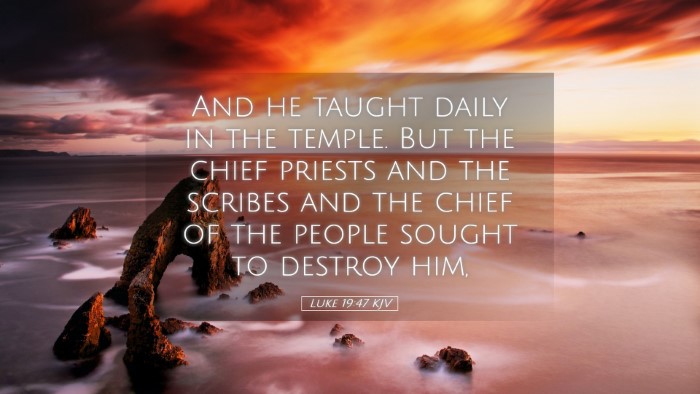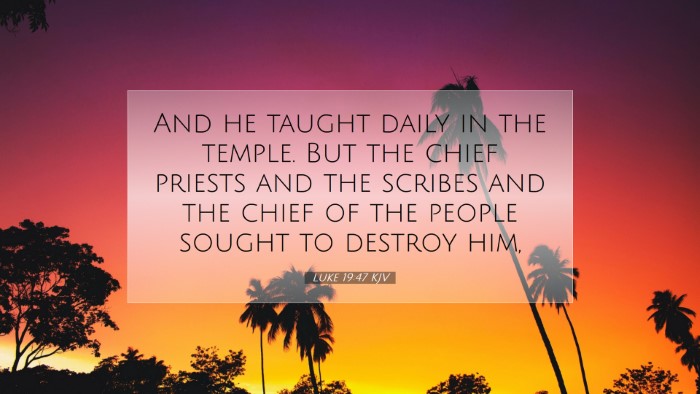Commentary on Luke 19:47
Verse Overview: Luke 19:47 states, "And he taught daily in the temple: but the chief priests and the scribes and the chief of the people sought to destroy him." This verse appears in the context of Jesus' final week in Jerusalem, highlighting a period of significant tension between Jesus and the Jewish religious authorities.
Contextual Analysis
The passage captures an essential moment in the ministry of Jesus. Following His triumphal entry into Jerusalem and the cleansing of the temple, Jesus took a position of teaching in the temple daily. This act is significant, as it not only demonstrates His authority as a teacher but also sets the stage for conflict with the religious leaders.
- Teaching in the Temple: Jesus' choice to teach in the temple, a central place of worship and authority, signifies the boldness of His mission. Matthew Henry notes that His daily teaching fulfilled the prophetic role of one who instructs the people in the ways of righteousness.
- Opposition from Authorities: The mention of "the chief priests and the scribes" underscores the existing tensions with religious authority. Albert Barnes emphasizes that these leaders, fearing the influence of Jesus on the crowd and the potential disruption of their power, were actively seeking to eliminate Him.
Theological Implications
This verse reveals deeper theological themes that resonate throughout the Gospels:
- The Authority of Jesus: Jesus' teaching underscores His authority. Adam Clarke argues that Jesus did not just teach the people; He challenged the existing interpretations of the Law and the prophets, pushing them toward a fuller understanding of God's will.
- The Nature of Opposition: The intent of the religious leaders to "destroy" Jesus illustrates the human tendency to resist divine truth. The resistance faced by Jesus can be viewed as a reminder of the pushback that often accompanies genuine spiritual movements.
- Fulfillment of Prophecy: The actions of both Jesus and the Jewish leaders fulfill prophecies concerning the Messiah's rejection. The conflict foreshadowed in this verse is pivotal in the narrative of Christ’s passion and redemptive work.
Practical Applications
For pastors and students of Scripture, Luke 19:47 serves as a valuable point of reflection and application:
- Commitment to Teaching: Despite opposition, Jesus remained committed to His mission of teaching. This encourages believers to persist in sharing the Gospel, even when faced with challenges.
- Understanding Authority: Recognizing that Jesus' teachings come with authority can inspire pastoral leaders to approach their own teachings with reverence and dedication, always aligning it with biblical truth.
- Awareness of Conflict: The interaction illustrated in this verse reminds leaders of the spiritual conflict that occurs when proclaiming truth. Understanding this dynamic is crucial for effective ministry.
Cultural and Historical Considerations
The cultural backdrop of this verse is significant. The temple represented the heart of Jewish worship, and for Jesus to teach there was both provocative and intentional. Matthew Henry reflects on the reaction of the crowds, who were torn between admiration for Jesus and fear of the established leadership.
Conclusion
Luke 19:47 encapsulates a critical juncture in the ministry of Jesus, encompassing themes of authority, conflict, teaching, and prophetic fulfillment. For contemporary readers, this passage challenges them to reflect on their faith in light of opposition and encourages unwavering commitment to the truth of the Gospel.


